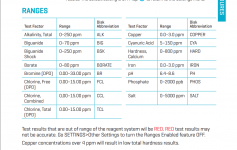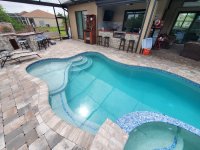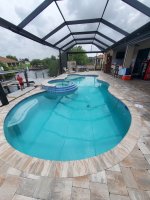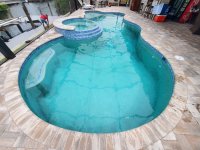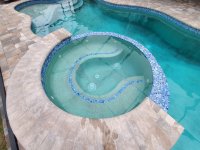I don't do start ups. I probably never will. There's a couple of guys that follow builders around a 50 mile radius doing start ups hoping to get a pool service contract out of it. That's not for me. However, I got an interesting call today from one such guy today to caution me against taking on any new pool that has a gas heater. He said with the amount of acid required to keep the pH down, he is finding copper stains in the pool and he is personally on the hook to use whatever (jacks?) magic he has to do in order to get rid of it. Could there be any truth to this?
The only experience I have had with copper causing problems was when I recently took on a pool with a copper/ozone/mineral system which we are currently in the process of having removed. The white part of the tile was stained blue and there was a lot of brown stains on the floor of the spa. Cu was 1.3ppb.
So should I run from my one pool that has a gas heater?
The only experience I have had with copper causing problems was when I recently took on a pool with a copper/ozone/mineral system which we are currently in the process of having removed. The white part of the tile was stained blue and there was a lot of brown stains on the floor of the spa. Cu was 1.3ppb.
So should I run from my one pool that has a gas heater?


